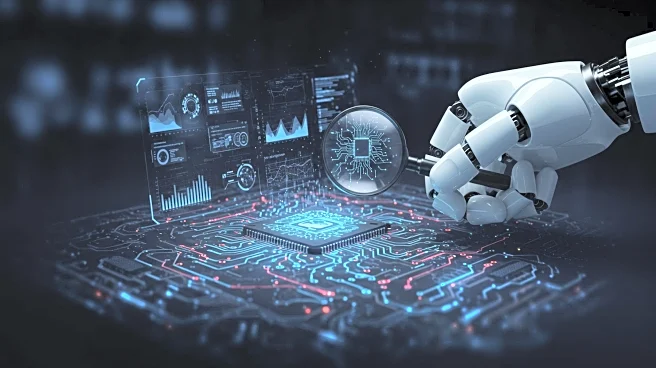What is the story about?
What's Happening?
Palantir's CEO, Alex Karp, has indicated plans to significantly increase revenue while reducing the workforce, suggesting that AI could replace 500 employees. Similarly, Amazon's CEO, Andy Jassy, has warned of potential workforce reductions due to increased robot mobility facilitated by AI. These statements reflect a broader trend among corporate leaders who are considering AI as a means to enhance efficiency and reduce human labor costs. Despite the technological readiness, CEOs are hesitant to initiate mass layoffs, fearing political backlash and societal consequences. This cautious approach is delaying the widespread implementation of AI-driven job replacements, as companies await political cover and societal acceptance.
Why It's Important?
The potential for AI to replace human jobs poses significant implications for the U.S. workforce, particularly in sectors like technology and logistics. As companies like Palantir and Amazon explore AI-driven efficiency, there is a looming threat of job displacement, which could exacerbate unemployment rates and economic inequality. The hesitation among CEOs to act reflects concerns about becoming targets of political criticism, highlighting the need for policymakers to address the societal impacts of AI. The shift towards AI could redefine job markets, necessitating new skills and roles, while also challenging existing social safety nets and healthcare systems.
What's Next?
As AI technology continues to advance, companies may increasingly adopt hiring freezes and justify roles that AI can perform, impacting job opportunities for younger generations. The political landscape may evolve as policymakers are pressured to develop strategies to mitigate the effects of AI-driven job losses. This could include creating new educational programs, retraining initiatives, and strengthening social safety nets. The tech industry, leading in AI adoption, may face scrutiny and calls for ethical considerations in workforce management. The future of employment may hinge on balancing technological progress with societal welfare.
Beyond the Headlines
The ethical implications of AI replacing human jobs raise questions about corporate responsibility and the role of technology in society. The potential for AI to exacerbate economic disparities and disrupt traditional employment models necessitates a reevaluation of labor laws and corporate governance. Long-term shifts in workforce dynamics could influence cultural perceptions of work and productivity, prompting discussions on the value of human labor versus machine efficiency. The integration of AI into the workforce may also drive innovation in job creation, as new industries and roles emerge to accommodate technological advancements.















